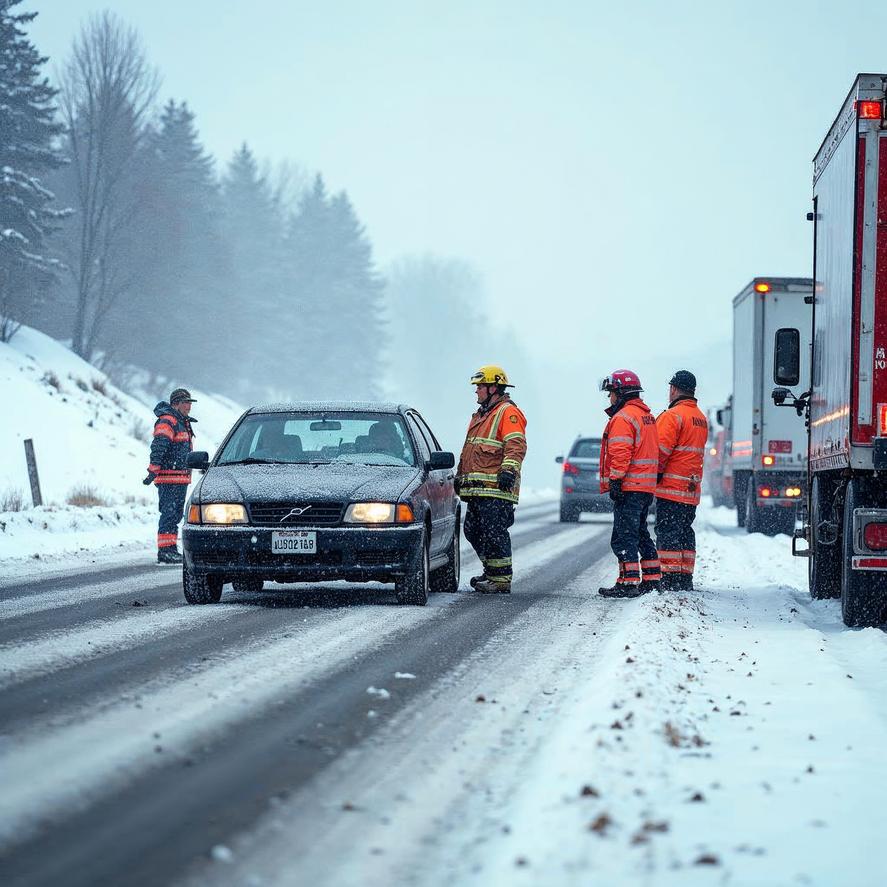
Unfortunately, based on your response, you may not qualify to file a claim. Most personal injury cases must be filed within two years of the accident, in accordance with the statute of limitations. Please consult with a licensed attorney to explore any possible exceptions or additional options.
Colorado’s unique climate, marked by sudden snowstorms, icy roads, and heavy rain, can significantly increase the risk of car accidents. Weather-related car accidents occur when environmental conditions such as snow, ice, fog, or rain impair visibility or road traction, leading to collisions. These accidents often present challenges when filing insurance claims due to issues around fault and coverage.
Immediately after a weather-related accident, the first priority should always be safety. If possible, move your vehicle to a safe location and check for injuries. Call emergency services if anyone is hurt. Document the accident scene thoroughly by taking pictures of vehicle damage, road conditions, and weather. This documentation is crucial when filing your claim.
Next, exchange information with the other driver, including names, contact details, and insurance information. Be sure to obtain contact information from any witnesses as well. Finally, report the accident to the police and request a copy of the police report, which can be vital in supporting your claim.
Once you have gathered all necessary information, notify your insurance company promptly. Being proactive helps ensure a smoother claim process. It is important to provide accurate and detailed information about the accident, including how weather conditions contributed to the collision.
Many claimants find it helpful to understand the documents needed to support their claim effectively. These documents typically include the police report, medical records, repair estimates, and photos of the accident scene. Accurate documentation can significantly impact the success of your claim.
Fault determination can be complicated in weather-related accidents. In Colorado, drivers are expected to exercise extra caution when weather conditions are hazardous. If a driver fails to adjust their speed or driving behavior to the conditions, they may be found at fault. However, some accidents may involve no clear fault due to unavoidable weather hazards.
Insurance coverage for weather-related accidents may vary depending on your policy. Typically, collision coverage handles accidents where you are at fault or where fault is disputed, while comprehensive coverage may protect against damage caused solely by weather, such as hitting a tree during a storm.
Understanding what insurance covers in your policy can help you set expectations regarding compensation and repair costs. Consulting with your insurance provider early can clarify your coverage options following a weather-related crash.
Filing a claim after a weather-related accident often includes unique challenges. Insurance adjusters may scrutinize claims more closely, especially in claims arising from adverse weather. It is important to avoid common mistakes such as delaying your claim submission, providing inconsistent statements, or failing to collect sufficient evidence at the accident scene.
For more insights on what to avoid, the page on mistakes to avoid after a motor vehicle accident claim offers practical advice to strengthen your claim and avoid pitfalls.
If you are unsure about any step in the claims process, consider seeking a free claim review to evaluate your case and help you understand your options and potential compensation.
For authoritative statistics on the impact of weather on road safety, you may refer to the National Highway Traffic Safety Administration's information on weather and roadway conditions.
Filing a weather-related car accident claim in Colorado involves careful documentation, understanding your insurance coverage, and acting promptly. By following the outlined steps and avoiding common mistakes, you can better protect your interests and work towards a fair settlement. For comprehensive guidance on this process, visiting resources on how to file and reviewing claims can equip you with the knowledge needed to navigate the complexities of weather-related car accident claims effectively.
Unfortunately, based on your response, you may not qualify to file a claim. Most personal injury cases must be filed within two years of the accident, in accordance with the statute of limitations. Please consult with a licensed attorney to explore any possible exceptions or additional options.